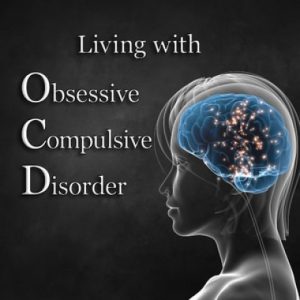Are you having uncontrollable reoccurring thoughts and behaviors that gives you the urge to repeat things over and over? If so, then you may have Obsessive Compulsive Disorder, also known as OCD. OCD is a common disorder that can affect all ages. Most people are usually diagnosed by the age of 19; boys have an earlier onset than girls do. There are two components to OCD, which included obsessions and compulsions. Obsessions causes people to have repeated thoughts and urges. Those same thoughts and urges can cause people to have anxiety. Fear of germs, having things symmetrical, and having aggressive thoughts towards yourself or others are all different symptoms of obsessions. Compulsions are repeated behaviors that a person with OCD feels the urge to do in response to the obsessive thoughts. For instance, if someone is obsessing over germs, their compulsions will be excessive cleaning or hand-washing. Compulsions can also have people repeatedly checking things out of fear that something bad will happen.
People that suffer from this disorder cannot control their excessive thoughts or behaviors. They do not get pleasure out of performing the behaviors, but they may feel some relief. There are times when some adults and most children do not realize that what they are doing is out of the ordinary. Typically, it takes a parent or teacher to recognize the symptoms in children. Occasionally, people with OCD will try to avoid their triggers by turning to alcohol or drugs. Though the cause of OCD is unknown, there are some risk factors. This includes, genetics, the environment, and brain functioning.
Medication and/or psychotherapy are treatments for OCD. Sometimes people with OCD have other mental disorders. Those disorders can include anxiety, depression, and even body dysmorphic disorder. Before deciding about treatment, it is important to take into consideration other mental disorders that can be present. When someone is prescribed medication they should talk to their doctor so they can understand all the risks and side effects. Psychotherapy can be an effective treatment for both adults and children. Research shows that certain types of psychotherapy, such as Exposure and Response Prevention can be just as effective as the medication.
If you are looking for treatment you can contact:
- The Substance Abuse and Mental Health Services Administration (SAMHSA) Treatment Referral Helpline at 1-800-662-HELP (4357).
- Door of Hope Counseling Center at 478-822-0033
Written By Brianna Nedd-Rice

